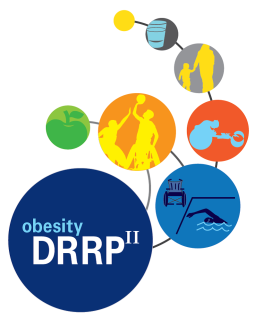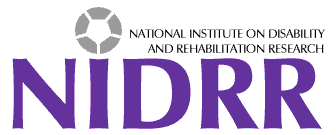
University of Alabama at Birmingham (UAB) Obesity Research Project on Prevalence Adaptations and Knowledge Translations in Younger Adults with Disabilities from Diverse Race/Ethnic Backgrounds: The Disability and Rehabilitation Research Project II uses a systematic approach to develop, identify, and adapt strategies and practices supporting participation of youth/young adults with disabilities in community-based obesity prevention programs.
Obesity prevalence and obesity-related secondary health conditions in people with physical and cognitive disabilities is higher than in the general population, particularly in African-American and Hispanic youth. Although national attention has focused on the obesity epidemic, very little attention or resources have been directed towards the core of younger individuals transitioning into adulthood. DRRP II will aid this population in finding adaptive and inclusive approaches to obesity prevention strategies in an effort to help decrease elevated obesity rates and secondary conditions in this population and to promote overall health.
About the Project
Youth and young adults with disabilities have a high rates of obesity and low rates of participate in physical activities.
This project will address that problem by expanding upon ongoing research on obesity in youth and young adults with disabilities by addressing significant gaps in the literature related to prevalence, risk factors, and consequences of obesity; successful and promising community-based strategies for obesity prevention; and knowledge translation issues that limit access to important research findings. The project focuses on transition-age youth and young adults, ages 15 to 25 years, with physical and cognitive disabilities from culturally diverse racial and ethnic backgrounds.
Goals, Objectives, & Project Outcomes
The project consists of three integrated research studies and a comprehensive national dissemination plan.
Goals and objectives include:
- Identifying obesity prevalence using data sets;
- Examining the antecedents and consequences of obesity;
- Using a national expert panel to establish methods and criteria for creating guidelines that enhance access to obesity prevention strategies and associated programs;
- Developing and testing an integrative knowledge translation framework for rapidly and effectively delivering research findings and recommendations.
Project outcomes include:
- Accurate set of obesity prevalence data by disability group and sociodemographic factors;
- Knowledge of the antecedents (i.e., risk factors) and consequences (i.e., secondary conditions) of obesity;
- Valid set of methods and criteria for adapting community-based obesity prevention strategies and programs;
- National guidelines for promoting inclusive obesity-prevention programs across the US in current and future programs;
- Integrative knowledge translation framework that effectively moves research findings into the hands of key stakeholders who can effect policy and/or program change.
How The Project Works
Every two months a new community-based strategy for preventing obesity will be featured. Encouragement is made of parents, researchers, teachers, clinicians, policy makers, and members of the disability community to suggest adaptations to these strategies and to comment on others' suggestions.
Next, the project Expert Workgroups (in the areas of nutrition, physical activity, culture, and policy) will discuss the suggested adaptations and vote on those that will become the final recommendations. These will then be posted on the website and will serve as a valuable resource for anyone seeking to make their community programs more inclusive.
Guidelines, Recommendations, Adaptations Including Disability (GRAIDs)
To help communities create environments that promote good nutrition and physical activity, the CDC initiated the Common Community Measures for Obesity Prevention Project to identify a set of strategies that communities and local governments can use for obesity reduction and prevention.
The 24 strategies created using the expert panel process are divided into six categories: 1) strategies to promote the availability of affordable healthy food and beverages, 2) strategies to support healthy food and beverage choices, 3) a strategy to encourage breastfeeding, 4) strategies to encourage physical activity or limit sedentary activity among children and youth, 5) strategies to create safe communities that support physical activity, and 6) a strategy to encourage communities to organize for change.
CRITERIA FRAMEWORK WORDING RULES

Disability and Rehabilitation Research Project (DRRP) II is funded by the U.S. Department of Education, National Institute for Disability and Rehabilitation Research (NIDRR), under grant H133A120102. The contents do not necessarily represent the policy of the U.S. Department of Education and you should not assume endorsement by the Federal Government.